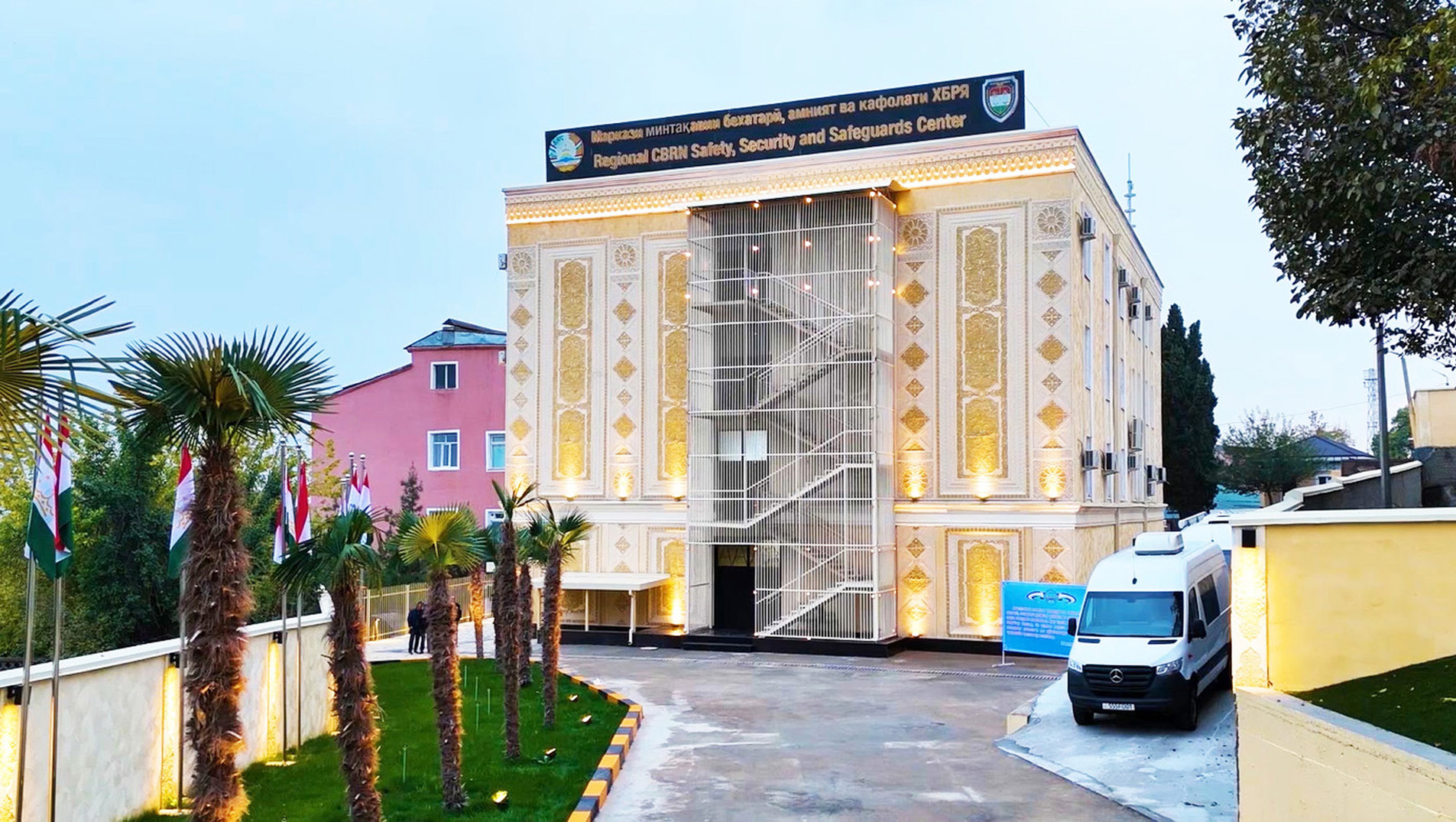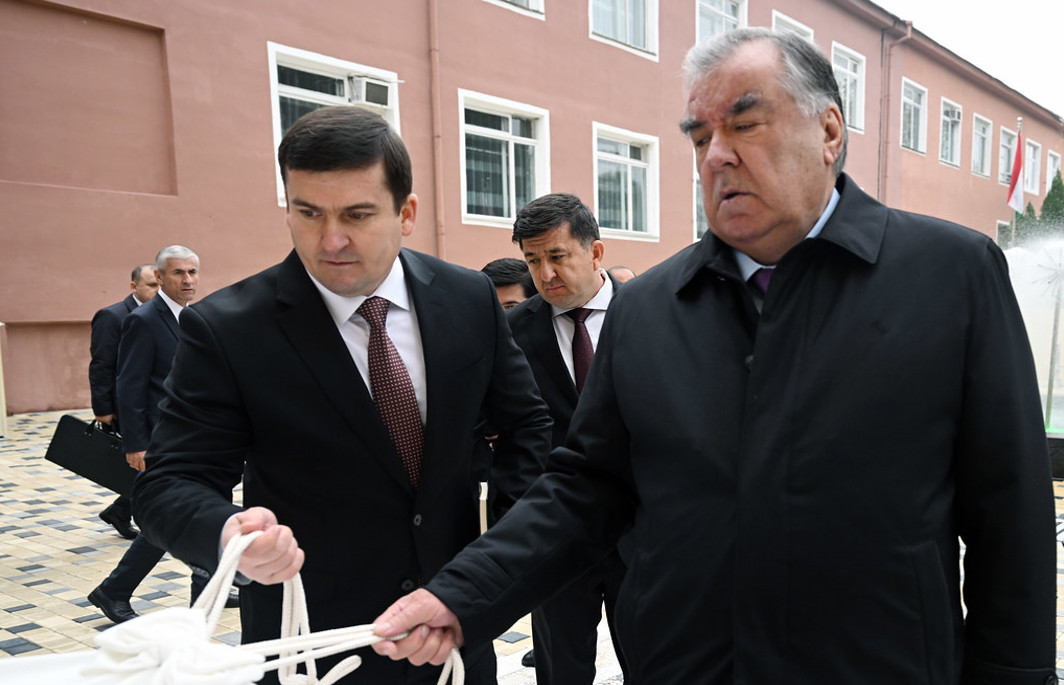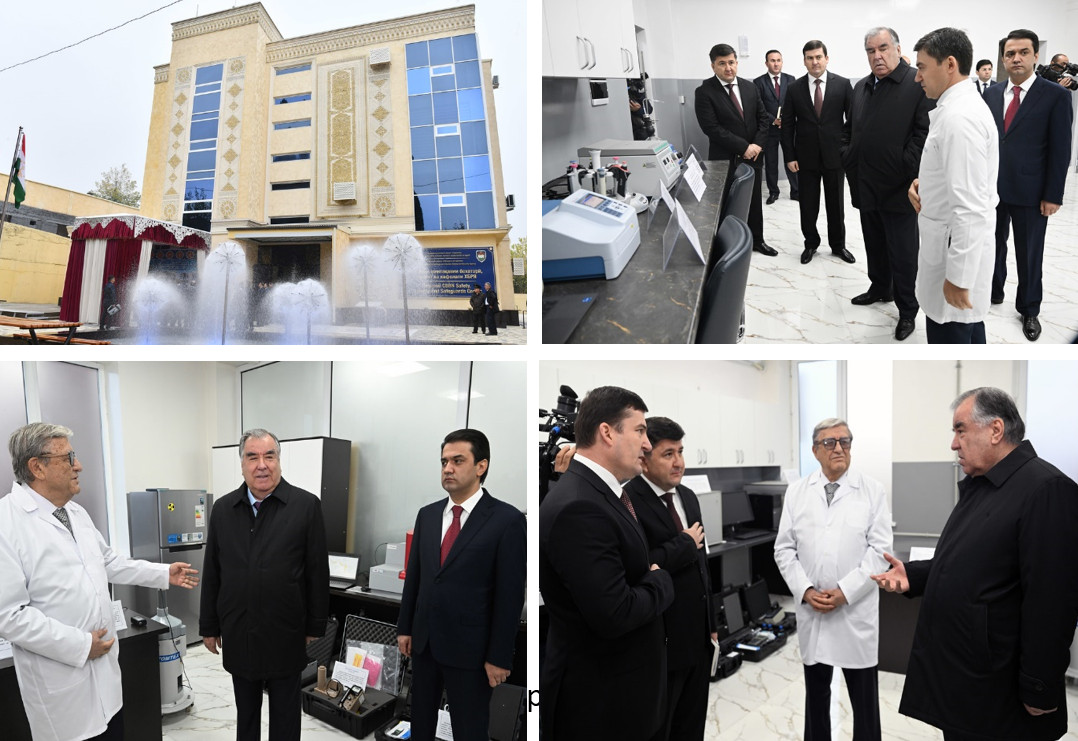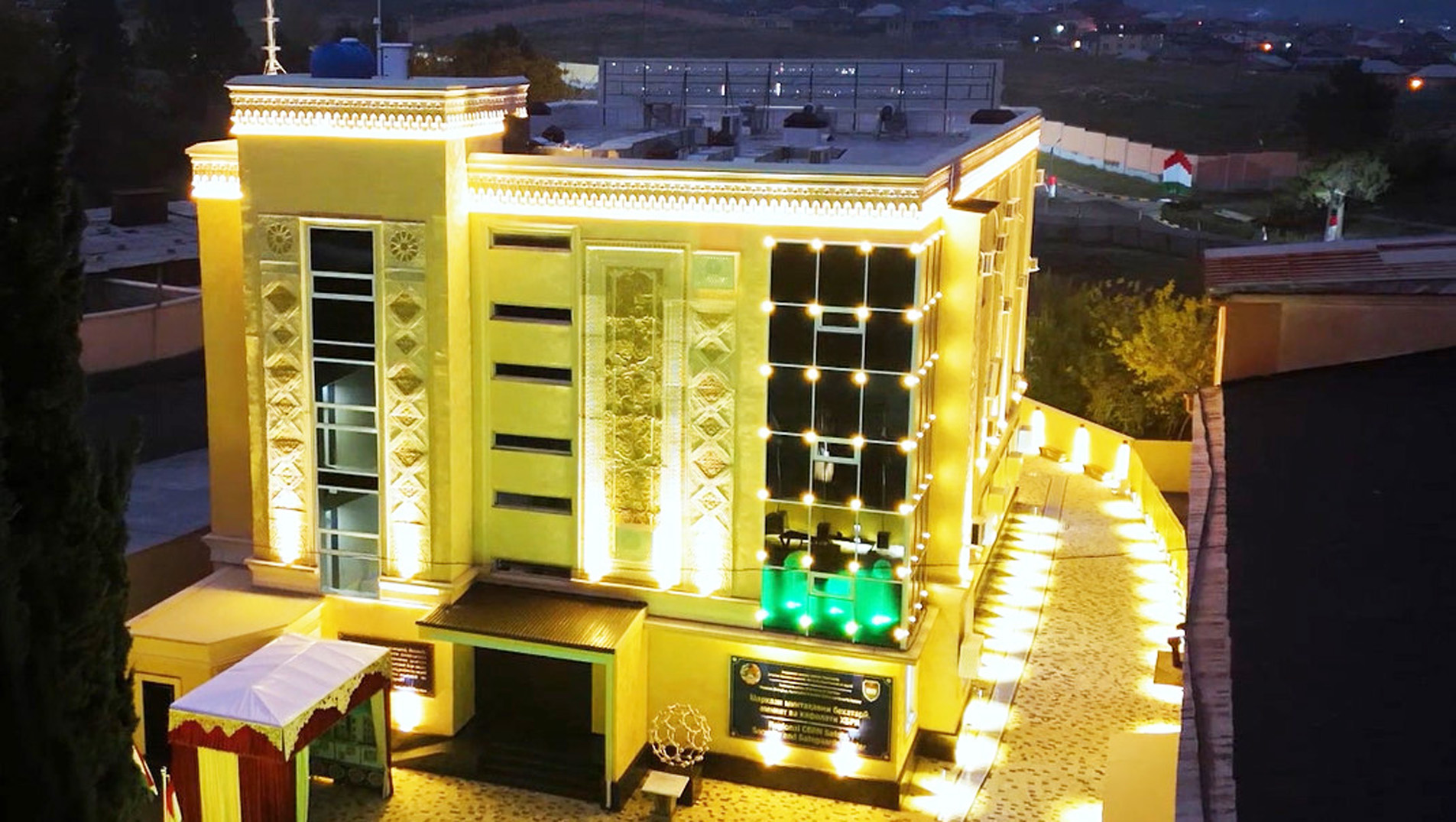Дар бораи Марказ

Агентии амнияти химиявы, биологѣ радиатсионни ва ядроии Академияи миллии илмѳои Тоѷикистон дар асоси АМИТ №134 аз 27.12.2021 тасдић гардидааст ва њарорѳои Ѳукумати дар бораи тартиби танзими давлатни дар соѳаи таъмини бехатарии ядроѣ ва радиатсионни» №509 аз 25.10.2022 ва «Оид ба муайян намудани маћоми ваколатдори давлатѣ дар соѳаи таъмини амнияти ядроѣ ва радиатсионни» № 394 аз 29 августи соли 2023 фаъолият менамояд.
корѳои илмни тадћићотю ва таѳлилѳои мураккаби моддаѳои радиоактивѣ дар Агентии амнияти химиявн, биологѣ радиатсионни ва ядроии АМИТ як ћатор чораѳо андешида шуданд.

29 Тоѷикистон Маѷлиси Олии Ѷумѳурии Тоѷикистон, Раиси шаѳри Душанбе муѳтарам Рустами Эмомалѣ дар ифтитоѳ намудани бинои нави Маркази минтаћавии бехатарни, амният ва кафолати химиявѣ, биологя, радиатсионѣ ва ядроии Академияи миллии илмѳои Тоѷикистон дар шаѳри Душанбе иштирок намуданд. Президенти мумѳурии Тоѷикистон муѳтарам Эмомалѣ Раѳмон ба маблаѓи 47 миллион сомони аз буѷаи давлатѣ ва маблаѓѳои шарикони хориѷии рушд омода шудааст. 2024 ба анѷом расид. Иншооти навбунёд 4-ошёна буда, дар масоѳати 35 садяк бо тарѳи меъмории замонавѣ бунёд ёфтааст. биология ва нодиртарин озмоишгоѳѳои илмии соѳаи иммунологѣ, вирусологѣ, бехатарѣ ва амнияти биологѣ ва криминалистикаи ядрон буда, барои беш аз 50 намуд таѷѳизот ва технологияи наву замонавѣ муѷаѳлил дар асоси стандартѳои байналмилалѣ омода шудааст.

Озмоишгоѳѳои Маркази мазкур дар самти назорати шуоъхӯрии беморон ва аѳолѣ, мониторинги радиатсионии муѳити зист – яъне, ченкунии фони радиатсионии табили радионуклидии маводѳои сохтмонѣ, ѷинсѳои кկѳѣ ва хокѳо; ченкунии ѷамъи фаъолияти хоси алфа - бетта – зарраѳо дар таркиби об; сохтани харитаи радиатсионии ѷумлѳурнии; тибблият менамояд.
Айни замон дар Маркази мазкур беш аз 27 нафар кормандони илмни ва 8 нафар кормандони техникѣ кору фаъолият карда истодаанд. менамояд, ки бо тамоми таѷзиѳоти замонавѣ муѷаѳѳаз гардидааст. истифода бурда мешавад. силоѳи ћатли ом ва назорати содиротѣ аз давраѳои омѯзишӣ мегузаранд.

